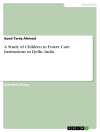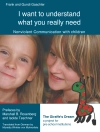This book examines the pedagogical encounters within children’s ecological and socio-cultural historical contexts, and aspects of playful learning and development within these contexts. It addresses research and practices varying across learning contexts, providing easily adaptable exemplary practices leading to children’s positive learning and development.
The book offers a unified general cultural-historical theoretical model for exploring new contexts at different stages of children’s learning and development. It suggests studying contexts as a source of development, as social situations of development. It analyzes play, early learning and the transition from play to school learning. It also explores the role of teachers and parents in supporting the development of executive functions, digital literacy, creative inquiries, problem solving and creativity as necessary and important prerequisites of children’s school academic achievements.
This volume contributes to the discourse on how children’s learning is shaped in the 21st century era. It equips educators and parents with new and effective methods of creating developing contexts in their daily practice and to fully utilize the developing potential of existing contexts.
表中的内容
1. Setting the scene: Contexts and development in early childhood.- 2. Cultural-historical theorisation of contexts and its role in child development and learning.- 3. Play and its role in child’s psychological development: Cultural-historical theoretical framework.- 4.- Case study 1: Contexts of playworlds and the development of executive functions in children.- 5. The bi-cultural context for second generation Chinese Australian children’s transition to school.- 6. Second generation Chinese Australian Children’s learning and development during transition to school within a bi-cultural context.- 7. Understanding the development of children’s inquiry skills and creativity: Cultural-historical theoretical framework for STEM learning.- 8. Stories of play with smart robotic toys: Contexts of building children’s perezhivanie for STEM learning.- 9. Bringing all together: Play, learning, and development in contexts.
关于作者
Dr. Nikolai Veresov is Associate Professor at Monash University. His area of interests is development in early years, cultural-historical theory and research methodology.
Dr. Sarika Kewalramani is a Senior Lecturer in STEM Education at Swinburne University of Technology. Her current roles as an early years/primary science lecturer has driven her research interests in the area of preschool science curriculum and pedagogy, and inquiry based practices. Her current research projects involve conceptualising kindergarten and preprimary teacher’s understanding of both play and inquiry based pedagogies and programs in ways that promote and meaningfully engage young children’s learning of science and integration of technologies.
Dr. Junqian Ma is a lecturer at School of Education Science in Nanjing Normal University, China. She was awarded the doctorate degree from Monash University in 2017. Before starting Ph D, she worked in a primary school in China as a class teacherand a Chinese language teacher. Her area of interests is cultural-historical theory and child development during the transition period.












